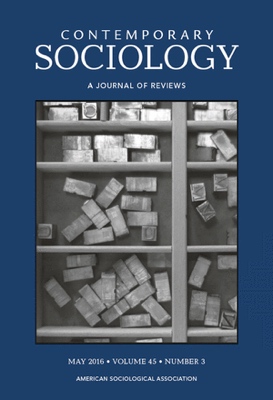A book review of People’s Science: Bodies and Rights on the Stem Cell Frontier, Ruha Benjamin, 2013.
Published May 2016 in Contemporary Sociology.
At a time of profound social inequalities in the United States, high-tech medicine is nonetheless touted for its potential to save all lives through miracle cures. The fact that these types of advances would likely be available only to people who are already privileged by the best health care is rarely woven into the narrative about medical progress. In her book People’s Science: Bodies and Rights on the Stem Cell Frontier, Ruha Benjamin critically examines California’s 2004 stem cell initiative as a so-called populist project. By using a lens of health disparities to understand the role of stem cell science, Benjamin deftly analyzes what such funding priorities mean for those who are systematically disadvantaged in society. For those of us working in the sociology of science, knowledge, and technology—or science and technology studies (STS) more generally—this approach to the topic is an innovative and refreshing empirical and conceptual choice. Whereas many STS scholars might select a laboratory for their ethnographic work, Benjamin brackets the science of stemcell research to instead trace how a publicly supported ballot measure engaged, eschewed, and intersected with multiple stakeholder groups within and beyond California. As a result, the book contributes not only to STS but also more broadly to the field of sociology for those with interests in medicine; race, class, and gender; disability studies; political economy; and poverty and inequality.
The context for Benjamin’s study is the politically contentious domain of funding for U.S. stem cell research. Given that some of this research utilizes human embryos, stem cell science is entrenched in moral debates about what constitutes human life and is, thus, deeply…

